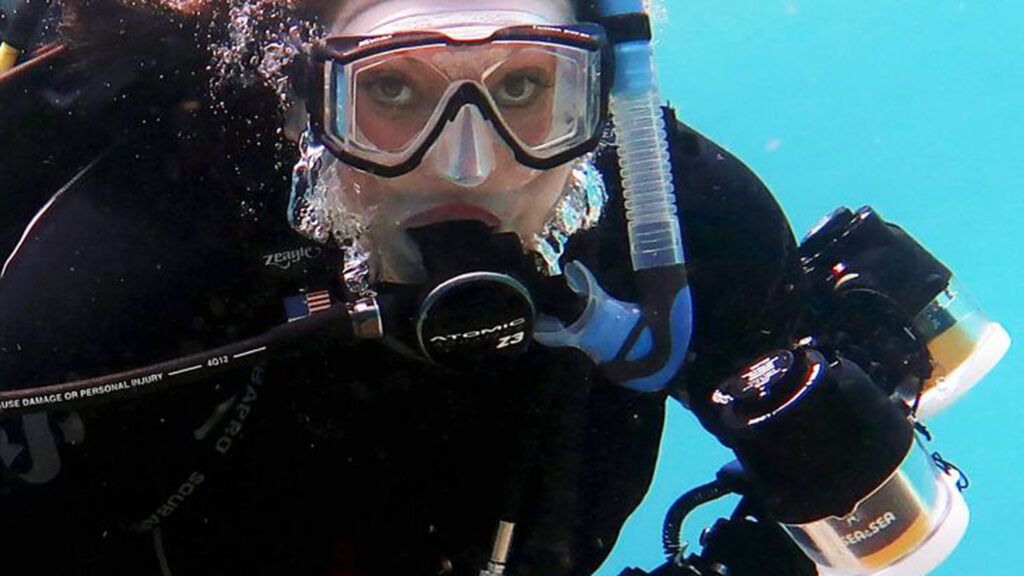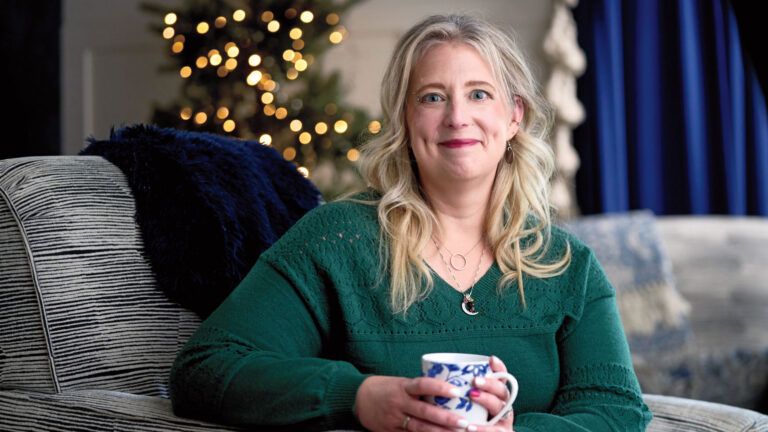It’s never too late to get out of your comfort zone.
Empty nester, author and solo world traveler Tam Warner Minton learned that at age 50 when she dropped everything to go alone on a volunteer trip to Mozambique to research manta rays.
“I had seen a documentary that had really impressed me and inspired me called Queen of Mantas, about a woman [Andrea Marshall] doing her PhD on manta rays and I was just so taken with it,” Minton tells Guideposts.org of her inspiration for the trip. “I just decided I’m going to do this [research] in the same village [as Andrea]. I wanted to meet her and see for myself all of the wonderful things I had seen on the documentary.”
But Minton, whose children were now adults and off on their own, had never gone that far away from home alone. “My family wasn’t thrilled about me going to Africa by myself,” she says. “They were nervous. I’m clumsy. I have a tendency to fall on flat surfaces, mostly, and I’m pretty ADHD. I’m scattered. I forget things and they were afraid I would miss a flight or misplace my passport and that someone would hurt me.”
Some of those concerns were valid, Minton admits. She did end up forgetting her camera at the security desk at the airport. But she made the 36-hour trip in one piece. “I just tend to laugh [at myself],” she says. “I am a little forgetful.” Still, it wasn’t all smooth sailing for the avid scuba diver when she reached Tofo, Mozambique.
Her first project was studying whale sharks and taking fish surveys on the reef of the coastal town. At first she felt completely overwhelmed. “The first day that I got there I felt I had bitten off more than I could chew,” she says. “I was the oldest there, everyone was Europeans in their 20s except for one woman. I thought, ‘Oh my God, I’m 50 years old,’ and the hills [in Tofo] were absolutely huge, so the physical ability to get around and even go out on the boat and scuba dive was hard for me at first.”
The water was much colder than she was used to and the current was much stronger. Though she had dived in many places in the past, there was no harbor or marina to help Minton get to the dive spot with ease. “You have to take a zodiac, a rubber boat out to get [to the dive spot] and so it takes a lot to even get in the boat to go dive. I thought, ‘Am I going to be able to do this?'”
Also, the accommodations were not what she was used to. “I was sharing a room and sharing bathrooms and I’m an American woman who is used to her own space and that was kind of difficult.”
But Minton pushed herself. “I didn’t want to stop and say, ‘I quit.’ I really wanted to complete this for myself.” The biologist, Dr. Marshall, who had inspired Minton’s trip, continued to be an inspiration for Minton while there. “Here is an American girl who went off on her own to Mozambique in this tiny little town and started a foundation and it seemed to me everything that I would never have dreamed of doing when I was that age,” she says of Dr. Marshall. “She was a woman alone following a passion without regard for social norms. There are not very many women who go off on their own like that.”
By the end of the month, she was running up and down the hills and heading out to dive with ease. “I felt so good about myself,” she says of taking the time to conquer her fears. In fact, she was so inspired by the marine life she found in Mozambique that she created a book of her underwater photography called All Fish Faces: Photos and Fun Facts About Tropical Reef Fish.
“The animals are different from ocean to ocean but the species are the same and that’s kind of what my book is about,” she says of All Fish Faces. “I found this great big fat frog fish and it was just the coolest thing I’d ever seen at that time. It’s like being on safari. You get really really excited when you see a giraffe or lion only under water in a completely different world.”
The joy she found photographing species underwater outweighed the fear she had of traveling alone or not being good enough or young enough or fitting in with the other volunteers. The passion, she decided, was worth the discomfort.
“It makes me very happy. As long as I can breathe [underwater] and look at fish, I’m happy.”
She was also able to meet in her inspiration, Dr. Marshall, while in Mozambique, and the two became friends and have traveled the world together. Minton has visited all 7 continents and has dived all over the world and traveled solo—all because she took that first step.
“I just booked my ticket [to Mozambique], because then, you have to go.”
Her advice to others who are trying to get out of their comfort zones: “Just do it. Book it. Once it’s booked, you’re kind of in it. There are so many opportunities in the world. Things to see, things to give back to. You don’t have to go to the ocean. Teaching people to farm or raise animals so they can make a living, educating girls. Anything anyone wants to do to give back they can find and they can do it in the United States, as well, and I urge them to do that as well.”
For those afraid to travel alone, she says, “Solo traveling does not mean that you’re alone all the time. I never feel lonely when I travel solo because there are always so many new people [I meet]. I can honestly say now that I have friends all over the planet.”
Some of those friends are people she never expected to befriend. “I might have been the oldest person on our trip to Mozambique, but I really bonded with them. It doesn’t matter what their nationality or religion is [when we share the same passion].”
Beyond her passion, Minton says a love of knowledge and connection to all God’s creatures is what drives her.
“I don’t want to be ignorant of what’s going on in the world. I think [travel] challenges us. Go volunteer somewhere. The world is big place,” she says.
“You don’t have to stay in the same spot [your whole life]. If people would open their minds a bit and not just go to an all-inclusive resort but really experiencing anything outside of your own culture, [you’ll see] how wonderful you’ll feel afterwards. It does away with fear.”






